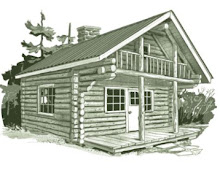Dead end roads
Larry Jones, Democrat Columnist
Living out in the country on a dead end road may have the advantage of attracting less traffic, but I’m not too sure this is a positive thing. When you put a pencil to it, you have to consider for every car you see, you see it twice — once on the way down and again on the way back. With the recent surge in development of our rural parts during the past couple of decades, traffic is getting a bit contentious these days.
Back when I was a mere pup, there were only about a half dozen houses in all of Lazy Bend. This certainly limited the traffic, but it also had a somewhat of a negative effect on our technological advances. We didn’t have electricity until the 1950s, and Southwestern Bell didn’t get around to putting in phone lines until the 60s. When they did, they strung them from the Tri-County Electric Cooperative utility poles.
Everyone in Lazy Bend was on a single, eight-party line, and to call anyone locally was a bit tricky. You had to dial a unique number (not their regular phone number), hang up the phone and allow it to ring a few times before you picked up the receiver to see if anyone answered it — sorta like fishing. Also, everyone had a distinct ring which was a combination of long and short rings. When I retired from the Navy in the late 1980s, we still had this antiquated system in place, though Ma Bell had made a couple of improvements on it.
Today, out here in the rural hinterland, we still have our problems with infrastructure. While living in Florida over 30 years ago, I had cable television with HBO and pay-per-view movies. This option still isn’t available on the poor farm. If I want anything other than reception via an antenna, which is unwatchable, I have no option other than invest in an expensive satellite receiver and pay an exorbitant monthly service fee. This capability has only been available for about 15 years.
My most recent frustration has been with the availability of Internet service providers. Only a few years ago, my only internet access was a dialup connection to a long distance Metro-Mess phone number which was certainly not an option. Just over 10 years ago, a local number became available, but it wasn’t until about three years ago we were able to receive high speed wireless Internet.
While this is a wonderful alternative to dialup service, it is expensive, unreliable and very slow compared to the DSL connections of our urban counterparts. Yet, it allows rural residents to take advantage of online services, shop online and correspond via e-mail. I am very unhappy with my wireless provider, and if there was any alternative other than satellite Internet, which is even more expensive, I would dump them in a heartbeat. There seems to be absolutely no governmental oversight or regulation to protect customers.
I’ve read the Texas Dept. of Agriculture, along with the Public Utilities Commission, are getting some of President Osama’s stimulus money to look into expanding broadband Internet service to rural areas that are unserved or underserved parts of the state. I’m not holding my breath in expectation of any real progress.
Meanwhile, hardly a month goes by I don’t receive a notice from AT&T offering to switch me over to a combo package including home phone, cell phone, Internet and cable TV — all for a price little more than I’m currently paying for basic phone service.
There’s only one small glitch. They don’t come down dead end roads.
Monday, July 20, 2009
Subscribe to:
Post Comments (Atom)

No comments:
Post a Comment